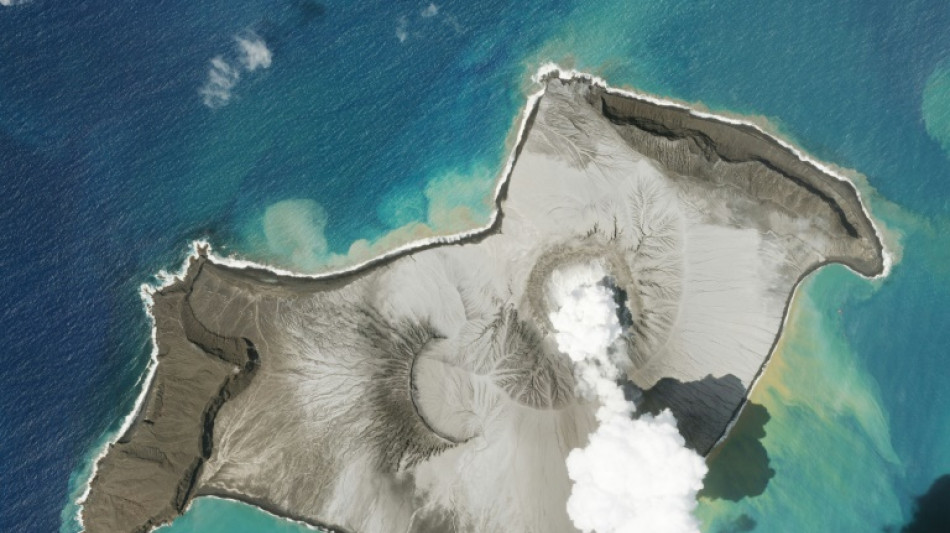
-
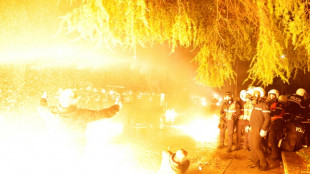 Several wounded in clashes at Albania opposition rally
Several wounded in clashes at Albania opposition rally
-
Chelsea's draw with Leeds 'bitter pill' for Rosenior

-
 'On autopilot': US skate star Malinin nears more Olympic gold
'On autopilot': US skate star Malinin nears more Olympic gold
-
Carrick frustrated by Man Utd's lack of sharpness in West Ham draw

-
 Frank confident of keeping Spurs job despite Newcastle defeat
Frank confident of keeping Spurs job despite Newcastle defeat
-
James's All-NBA streak ends as Lakers rule superstar out of Spurs clash

-
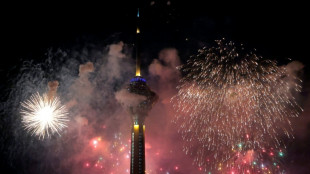 Anti-Khamenei slogans in Tehran on eve of revolution anniversary: social media footage
Anti-Khamenei slogans in Tehran on eve of revolution anniversary: social media footage
-
Colombian senator kidnapped, president targeted in election run-up
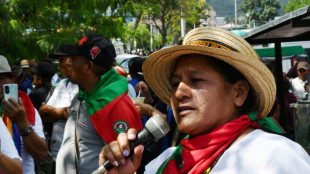
-
 Britney Spears sells rights to her music catalog: US media
Britney Spears sells rights to her music catalog: US media
-
West Ham end Man Utd's winning run, Spurs sink to 16th

-
 US skate star Malinin leads after short programme in Olympics
US skate star Malinin leads after short programme in Olympics
-
Man Utd's Sesko strikes late to rescue West Ham draw

-
 Shiffrin flops at Winter Olympics as helmet row grows
Shiffrin flops at Winter Olympics as helmet row grows
-
Celtics' Tatum practices with G League team but injury return uncertain

-
 Gisele Pelicot publishes memoirs after rape trial ordeal
Gisele Pelicot publishes memoirs after rape trial ordeal
-
Newcastle beat sorry Spurs to leave Frank on the brink

-
 'Outrage' as LGBTQ Pride flag removed from Stonewall monument
'Outrage' as LGBTQ Pride flag removed from Stonewall monument
-
Chappell Roan leaves agency headed by embattled 2028 Olympic chief

-
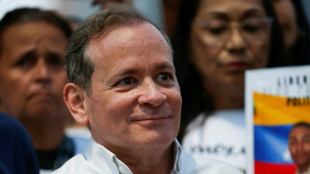 Venezuelan authorities move Machado ally to house arrest
Venezuelan authorities move Machado ally to house arrest
-
YouTube rejects addiction claims in landmark social media trial

-
 Google turns to century-long debt to build AI
Google turns to century-long debt to build AI
-
'I felt guided by them': US skater Naumov remembers parents at Olympics

-
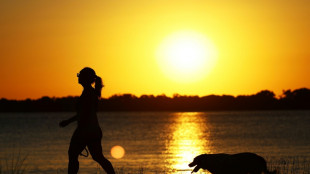 Till death do us bark: Brazilian state lets pets be buried with owners
Till death do us bark: Brazilian state lets pets be buried with owners
-
'Confident' Pakistan ready for India blockbuster after USA win

-
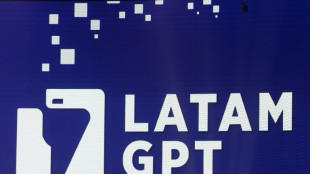 Latam-GPT: a Latin American AI to combat US-centric bias
Latam-GPT: a Latin American AI to combat US-centric bias
-
Gauff dumped out of Qatar Open, Swiatek, Rybakina through

-
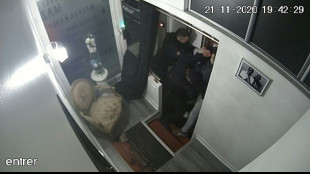 Paris officers accused of beating black producer to stand trial in November
Paris officers accused of beating black producer to stand trial in November
-
Istanbul bars rock bands accused of 'satanism'
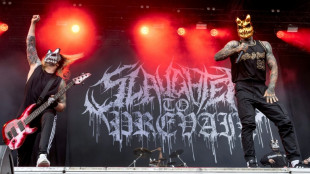
-
 Olympic bronze medal biathlete confesses affair on live TV
Olympic bronze medal biathlete confesses affair on live TV
-
US commerce chief admits Epstein Island lunch but denies closer ties

-
 Mayor of Ecuador's biggest city arrested for money laundering
Mayor of Ecuador's biggest city arrested for money laundering
-
Farhan, spinners lead Pakistan to easy USA win in T20 World Cup

-
 Stocks mixed as muted US retail sales spur caution
Stocks mixed as muted US retail sales spur caution
-
Macron wants more EU joint borrowing: Could it happen?

-
 Shiffrin flops at Winter Olympics as helmet row simmers
Shiffrin flops at Winter Olympics as helmet row simmers
-
No excuses for Shiffrin after Olympic team combined flop

-
 Pool on wheels brings swim lessons to rural France
Pool on wheels brings swim lessons to rural France
-
Europe's Ariane 6 to launch Amazon constellation satellites into orbit
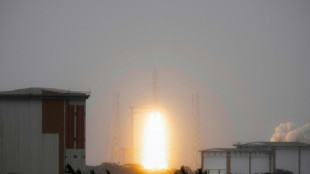
-
 Could the digital euro get a green light in 2026?
Could the digital euro get a green light in 2026?
-
Spain's Telefonica sells Chile unit in Latin America pullout

-
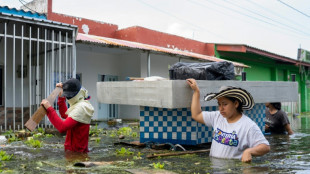 'We've lost everything': Colombia floods kill 22
'We've lost everything': Colombia floods kill 22
-
Farhan propels Pakistan to 190-9 against USA in T20 World Cup

-
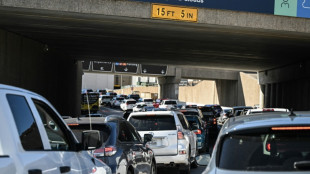 US to scrap cornerstone of climate regulation this week
US to scrap cornerstone of climate regulation this week
-
Nepal call for India, England, Australia to play in Kathmandu

-
 Stocks rise but lacklustre US retail sales spur caution
Stocks rise but lacklustre US retail sales spur caution
-
Olympic chiefs let Ukrainian athlete wear black armband at Olympics after helmet ban

-
 French ice dancers poised for Winter Olympics gold amid turmoil
French ice dancers poised for Winter Olympics gold amid turmoil
-
Norway's Ruud wins error-strewn Olympic freeski slopestyle
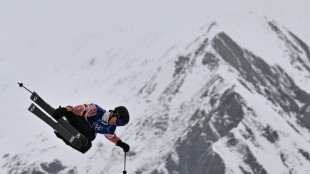
-
 More Olympic pain for Shiffrin as Austria win team combined
More Olympic pain for Shiffrin as Austria win team combined
-
Itoje returns to captain England for Scotland Six Nations clash


Shock waves, landslides may have caused 'rare' volcano tsunami: experts
A rare volcano-triggered tsunami sparked by the eruption of Hunga Tonga-Hunga Ha'apai in Tonga could have been caused by shock waves or shifting underwater land, experts said Monday.
"A volcanic-source tsunami event is rare but not unprecedented," a post on the website for New Zealand's geological hazard monitoring system GNS said Monday.
GNS Tsunami Duty Officer Jonathan Hanson said it probably occurred in part thanks to a previous eruption of the same volcano one day earlier.
"It is likely that the earlier 14 January eruption blew away part of the volcano above water, so water flowed into the extremely hot vent," wrote Hanson.
"This meant that the Saturday evening eruption initially occurred underwater and exploded through the ocean, causing a widespread tsunami," he said.
Two days after Hunga Tonga-Hunga Ha'apai's massive explosion, the nation's 100,000 population remained virtually cut off from the rest of the world with crippled communications and stalled emergency relief efforts.
The volcano cloaked Tonga in a film of ash, sent a column of ash and gas 20 kilometres into the air and shock waves that could be seen from space rippling across the planet.
It also triggered a Pacific-wide tsunami whose waves were strong enough to drown two women in Peru more than 10,000 kilometres (6,000 miles) away.
- Ring of Fire -
Hunga Tonga-Hunga Ha'apai is located in the so-called Ring of Fire, where a rift between shifting tectonic plates results in increased seismic activity.
In a volcanic eruption, magma rising to the surface of the Earth's crust causes volcanic gases to be released that then push their way out from underground, creating pressure.
When the gases reach water it expands into water vapour, creating even more pressure.
Volcano expert Ray Cas of Monash University in Australia said he suspected the intensity of the explosion suggested a large amount of gas had risen into the vent.
"The tsunamis could have been triggered by shock waves propagating through water," he commented on the Australian Science Media Centre.
"But more likely largely by a landslide on the submarine part of the volcanic edifice triggered by the explosive eruption."
Yet another possibility is that the volcano's special location just beneath the surface of the ocean could have made its effects worse.
The volcano's 1,800 metres of height is almost entirely submerged beneath the surface of the ocean, the edge of its crater forming an uninhabited island.
"When eruptions happen deep in the ocean, the water tends to muffle the activity. When it happens in the air, the risks are concentrated to the immediate area," Paris-based geologist Raphael Grandin told AFP.
"But when it's just under the surface, that's when the tsunami risk is greatest," he said.
- Exceptionally loud eruption -
People are reported to have heard Hunga Tonga-Hunga Ha'apai's eruption as far away as Alaska, 9,000 kilometres from the source, which Grandin said is "exceptional".
"As far as I know the last explosion that was audible at that distance was caused by the Krakatoa volcano in Indonesia in 1883 -- it killed 36,000 people," he said.
Experts also said that while the volcano could experience further activity, past research shows an eruption of Saturday's scale probably only occurs every 1,000 years.
Scientists who commented on the phenomenon said they would know more about how it took place once communication with the Pacific nation of some 170 islands could be restored.
A.Jones--AMWN


